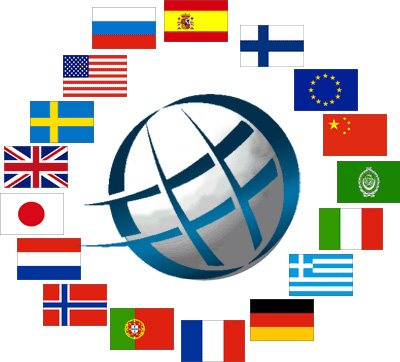 The Internet is set to undergo one of the biggest changes in its four-decade history with the expected approval this week of international domain names — or addresses — that can be written in non-Latin script, an official said Monday.
The Internet is set to undergo one of the biggest changes in its four-decade history with the expected approval this week of international domain names — or addresses — that can be written in non-Latin script, an official said Monday.
The Internet Corporation for Assigned Names and Numbers, or ICANN — the non-profit group that oversees domain names — is holding a meeting this week in Seoul. Domain names are the monikers behind every Web site, e-mail address and Twitter post, such as “.com” and other suffixes.
One of the key issues to be taken up by ICANN’s board at this week’s gathering is whether to allow for the first time entire Internet addresses to be in scripts that are not based on Latin letters. That could potentially open up the Web to more people around the world as addresses could be in characters as diverse as Arabic, Korean, Japanese, Greek, Hindi and Cyrillic — in which Russian is written.
“This is the biggest change technically to the Internet since it was invented 40 years ago,” Peter Dengate Thrush, chairman of the ICANN board, told reporters, calling it a “fantastically complicated technical feature.” He said he expects the board to grant approval on Friday, the conference’s final day.
The Internet’s roots are traced to experiments at a U.S. university in 1969 but it wasn’t until the early 1990s that its use began expanding beyond academia and research institutions to the public.
Rod Beckstrom, ICANN’s new president and CEO, said that if the change is approved, ICANN would begin accepting applications for non-Latin domain names and that the first entries into the system would likely come sometime in mid 2010.
Enabling the change, Dengate Thrush said, is the creation of a translation system that allows multiple scripts to be converted to the right address.
“We’re confident that it works because we’ve been testing it now for a couple of years,” he said. “And so we’re really ready to start rolling it out.”
Of the 1.6 billion Internet users worldwide, Beckstrom — a former chief of U.S. cybersecurity — said that more than half use languages that have scripts based on alphabets other than Latin.
“So this change is very much necessary for not only half the world’s Internet users today, but more than half of probably the future users as the use of the Internet continues to spread,” he said.
Beckstrom, in earlier remarks to conference participants, recalled that many people had said just three to five years ago that using non-Latin scripts for domain names would be impossible to achieve.
“But you the community and the policy groups and staff and board have worked through them, which is absolutely incredible,” he said.
ICANN is headquartered in the United States in Marina del Rey, California.


